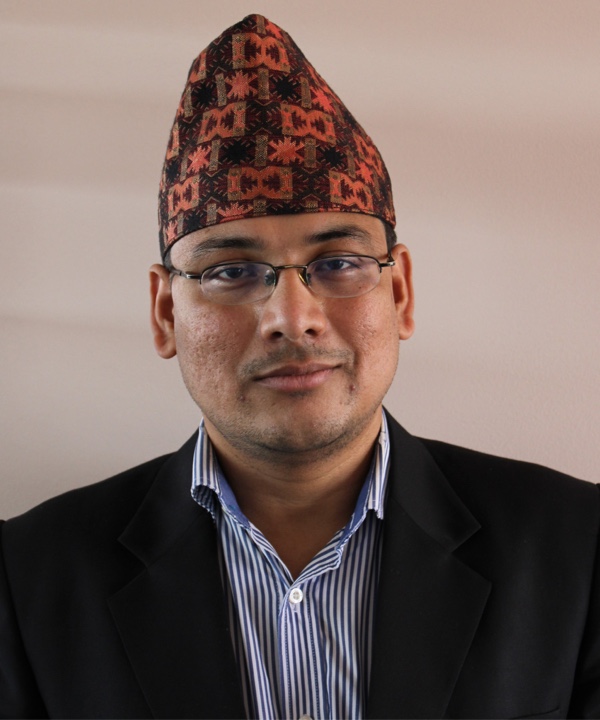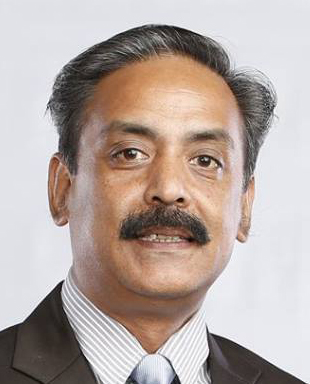
Sindhupalchok, 22 September 2019
“Basic infrastructures,specifically electricity generation facilities and roads, are the basic requirement to materialize the dream of prosperity in Nepali people and in this context, the Millennium Challenge Compact plays a significant role.” Mr. Sher Bahadur Tamang, the Chief Guest and a Member of Parliament and Ex-Minister for Law and Justice, expressed his opinion in a district level consultation program on Electricity Transmission Project (ETP) of Millennium Challenge Account Nepal (MCA-Nepal) in Chautara of Sindhupalchowk District on 22 September 2019.
Recalling his involvement in reviewing the agreement as the Minister for Law and Justice, Mr. Tamang mentioned that the document was a far-sighted vision in utilizing every unit of the electricity produced in Nepal as well as exporting the surplus production. As Nepal lacks the sufficient investment to build required development infrastructure, the generous grant from the US Government is going to contribute significantly in the economic development of the country,” he added. The event also saw the participation of local government officials, elected representatives and the media.

Mr. Sher Bahadur Tamang, a Member of Parliament and Ex-minister for Law and Justice, delivering his address as the Chief Guest at the program.
Mr. Khadga Bahadur Bisht, the Executive Director at MCA-Nepal presented on the theme, “Transmission Line for Electricity Development in Nepal – where to align the line”.He said,”Electricity consumption is a parameter of development. Statistics show that the more a country produces and consumes electricity, the more it is developed. “Most of the river water, a source for electricity generation is flowing out of our land without being used, so we need to build an environment to encourage electricity production and facilities to link the electricity production and the market”, he stated.
Introducing Millennium Challenge Corporation (MCC) and MCA-Nepal to the gathering, Shalav Risal, the Human Resource and Administration Manager at MCA-Nepal, mentioned that the US $ 500 million worth Nepal Compact is the biggest contribution of MCC in South Asia, and it was provided based on an economic constraint analysis conducted by a joint team of economists working on behalf of the governments of Nepal and the United States.In a presentation on “Environmental Impacts of 400 kV Transmission Line and their Mitigation Measures”, Mr. Shyam Upadhyaya, the Quality Assurance Manager for Environment, Health & Safety at MCA-Nepal, explained about the measures the project is taking for mitigating the environmental, health and livelihood impacts.
Similarly, Rajendra P. Thanju, the Quality Assurance Manager for Social Inclusion and Resettlement at MCA-Nepal, briefed the audience on the provisions the program was going to follow regarding resettlement of affected people in his presentation on “Social Safe guarding Resettlement Policy Framework – better off principle”.In her remarks, Ms. Goma Devi Chemjong, the Chief District Officer of Sindhupalchowk district, expressed her commitment to provide required assistance to let the project complete its work in the district as the initiation was going to contribute to the development of the entire country.

“The project needs full support from local people to implement its plan, “Ms Bhagawati Nepal, the Deputy Mayor at Melamchi Municipality and also the proposed site of the ETP stated, “As long as the program addresses local people’s concerns, the local government will be with it.” Questions related to the private and public land,impact on the buffer zone and livelihood and security of local people, labour security etc. were raised during the open session, which were addressed by concerned officials.

Ms. Goma Devi Chemjong, the Chief District Officer of Sindhupalchowk district, expressed her commitment to provide required assistance to let the project complete .
The event ended with Ms. Alina Rajbhandary Shrestha, Communications and Public Affairs Manager at MCA-Nepal thanking the participants for their active participation and valuable inputs. Sindhupalchowk is one of the ten districts that will be affected by the electricity transmission line project. Out of 318 KM of 400 kV transmission line, 10 km will pass through four wards (Ward No. 1, 2, 3 and 4) of Melamchi Municipality in the district,and 37 towers will be built for the same purpose in the district. In total,seven public/private structures, 11.55 hectare forest land and 34.81 hectare private land are projected to be affected during the implementation of the project in the district.

MCA-Nepal is in the preparatory phase to implement the US Government Grant of US $ 500 million and Government of Nepal’s contribution of US $ 130 million in electricity transmission line construction and road maintenance in various parts of Nepal. The Government of Nepal has declared the Electricity Transmission Project, which is responsible for the construction of 313 km of 400 kV double circuit transmission line as a ‘Project of National Pride’.





























